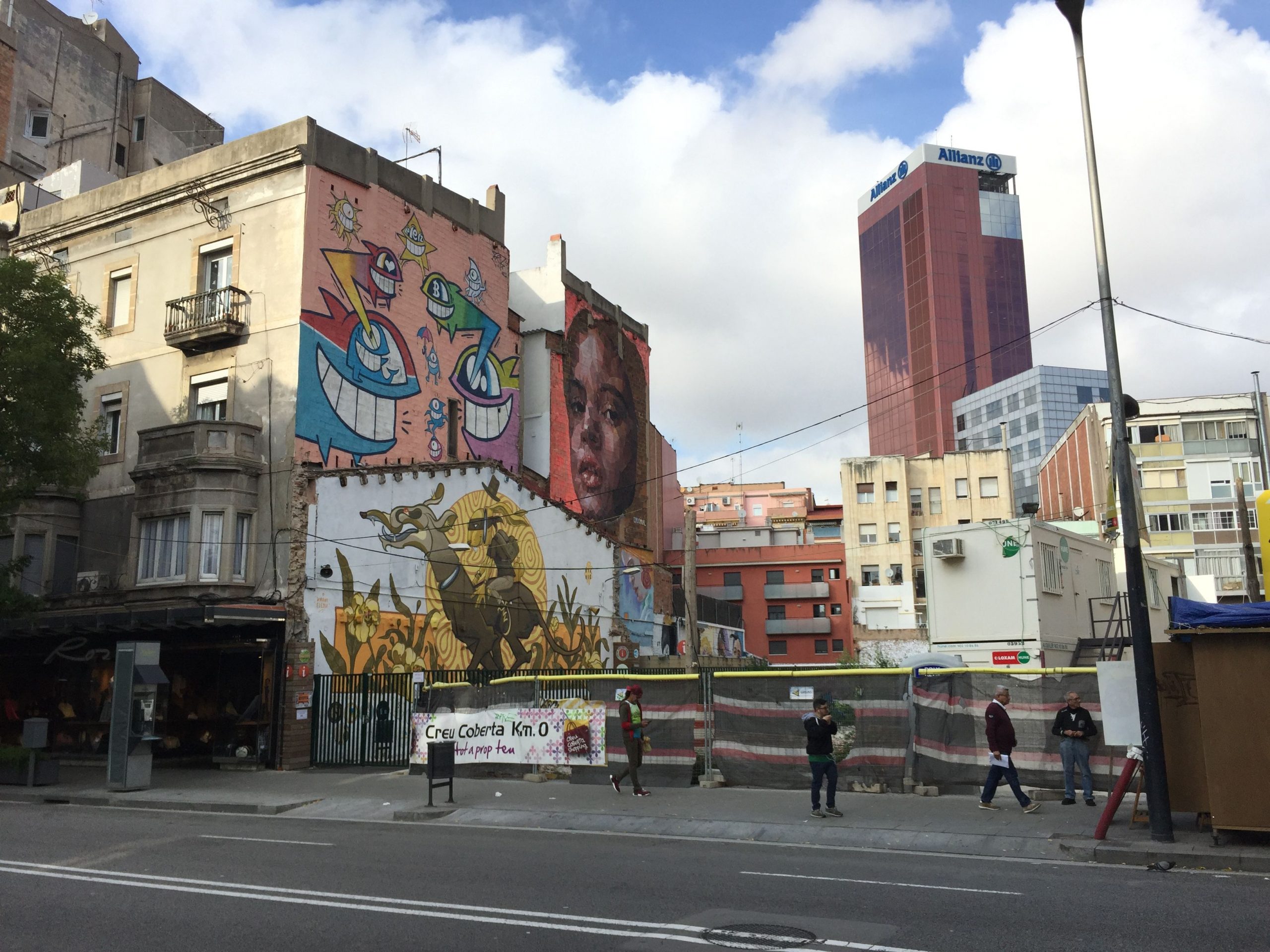By Nikolas Kozloff
To the extent that at least some people will be able to travel after the pandemic subsides, and haven’t gone bankrupt, how will tourism change in future? A cursory search on the internet reveals scores of articles delving into such questions. “The crises of 2020,” notes the New York Times, “…have caused many travellers to rethink how and where to travel. Rather than taking luxury spa trips or sun-and-fun cruises, many are seeking to put more meaning into their future travels, either through a personal challenge like long-distance cycling, exploring their heritage or realising a life goal.” The rise of so-called “mission-driven” or “purpose-led” tourism has spurred the growth of tour operators devoted to volunteer travel and sustainability. In future, experts believe travel will become more “intentional,” with people gravitating towards meaningful or even “transformative” experiences, not to mention safeguarding the environment. Others hope that tourism will become more “connected,” inclusive and democratic, with travellers paying more attention to the needs of local residents and communities.
Travel writer Andrew Evans believes post-pandemic travel should move beyond “unbridled global capitalism” and “a race to the bottom.” In a column written for NBC, he notes that “slowly, our world will reconnect — border by border…And yet, returning to baseline should not be our metric for success, because mass global tourism had a very sordid underbelly.” The pandemic should encourage a reckoning with problems endemic within the travel industry, from pollution to unfair labor conditions to exploitation of women. For all its talk of “sustainability,” he writes, the travel industry has failed to implement a truly sustainable model based on systematic global standards.
From Boondoggle Cruise Ships…
Though many articles about post-Coronavirus travel make sense on the merits, few have promoted a detailed vision of the future. As the world starts to consider paradigm-shifting modes of travel, it’s worth considering the case of Barcelona, which might pave the way for leftist-environmental-cooperative tourism or call it what you will. As an avid and long-time traveler to Spain, I have a personal interest in these matters: in February, 2020, I made a trip to Barcelona, just prior to the pandemic. While the city’s atmosphere was certainly electric and captivating, crowds in historic downtown were overwhelming, to say nothing of unseemly prostitution and rowdy drinking.
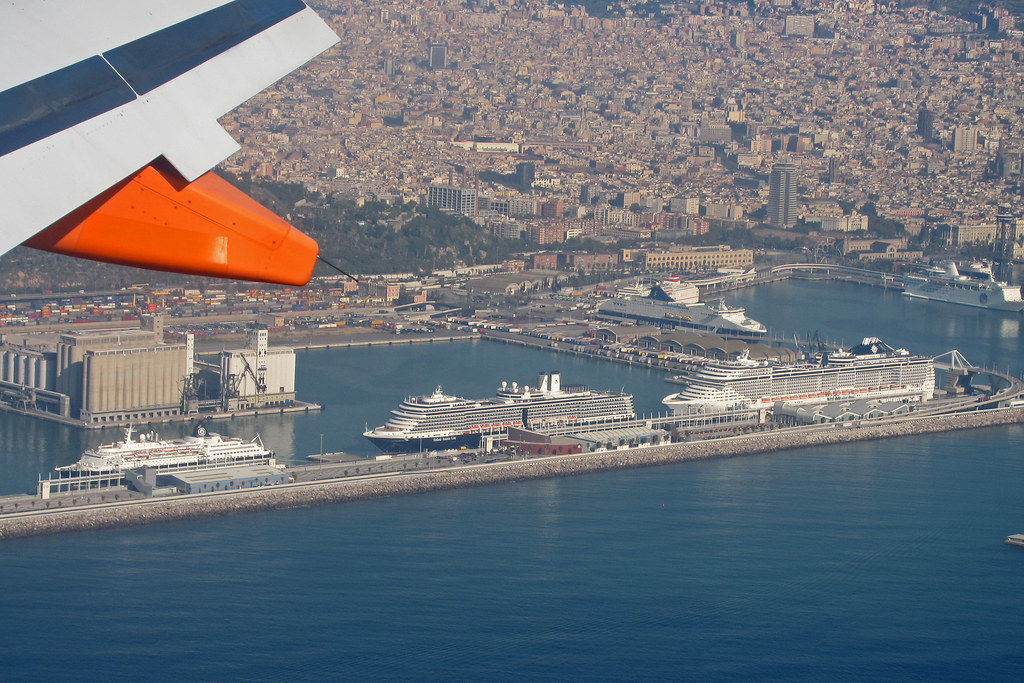
Prior to the pandemic, Barcelona found it difficult to cope with its millions of visitors, and needless to say, the historic centre was hollowed out as local bakeries, as well as fruit and vegetable markets, were supplanted by souvenir shops and hotels. Most pre-pandemic visitors traveling to Barcelona arrived by plane, which negatively impacted climate change. In addition, the city received the ignominious distinction of being the most polluted port in Europe, with the highest amounts of sulphur oxide and carcinogenic nitrogen oxide linked to docking cruise ships. As it happens, cruise ships represent a particularly bedeviling environmental conundrum, since vessels run on fuel oil, which contains much more sulphur dioxide than standard diesel.
Overloaded by cars, Barcelona experienced a so-called “urban heat island effect,” which meant the city became warmer than surrounding rural areas. Indeed, the city’s 1.6 million people are crammed into a small area lying between the sea and mountains, and as a result there is very little breathing space. Reportedly, citizens breathe air which consistently ranks above EU and World Health Organization limits for nitrogen oxide and PM10 particulates. The main culprit is not industry, but rather the car, since Barcelona has the highest density of motor vehicles within the EU. Meanwhile, streets became noisier and more congested. By some estimates, Barcelona became the noisiest city in Europe and one of the noisiest in the world. Though noise receives less scrutiny than air pollution, the health impacts can be no less serious, and may contribute to hearing loss, stress and heart conditions.
Backlash
In addition, the advent of low-cost airlines such as Ryanair brought “a particularly scruffy form of tourism” to Spain. The Rambla was overrun with 180,000 visitors a day, with low-quality bars and restaurants overshadowing museums and theatres. Neighbourhoods hugging the coastline, which had been home to local fishermen, saw a rise in illegal Airbnb rooms and apartments, which in turn cut down on affordable housing.
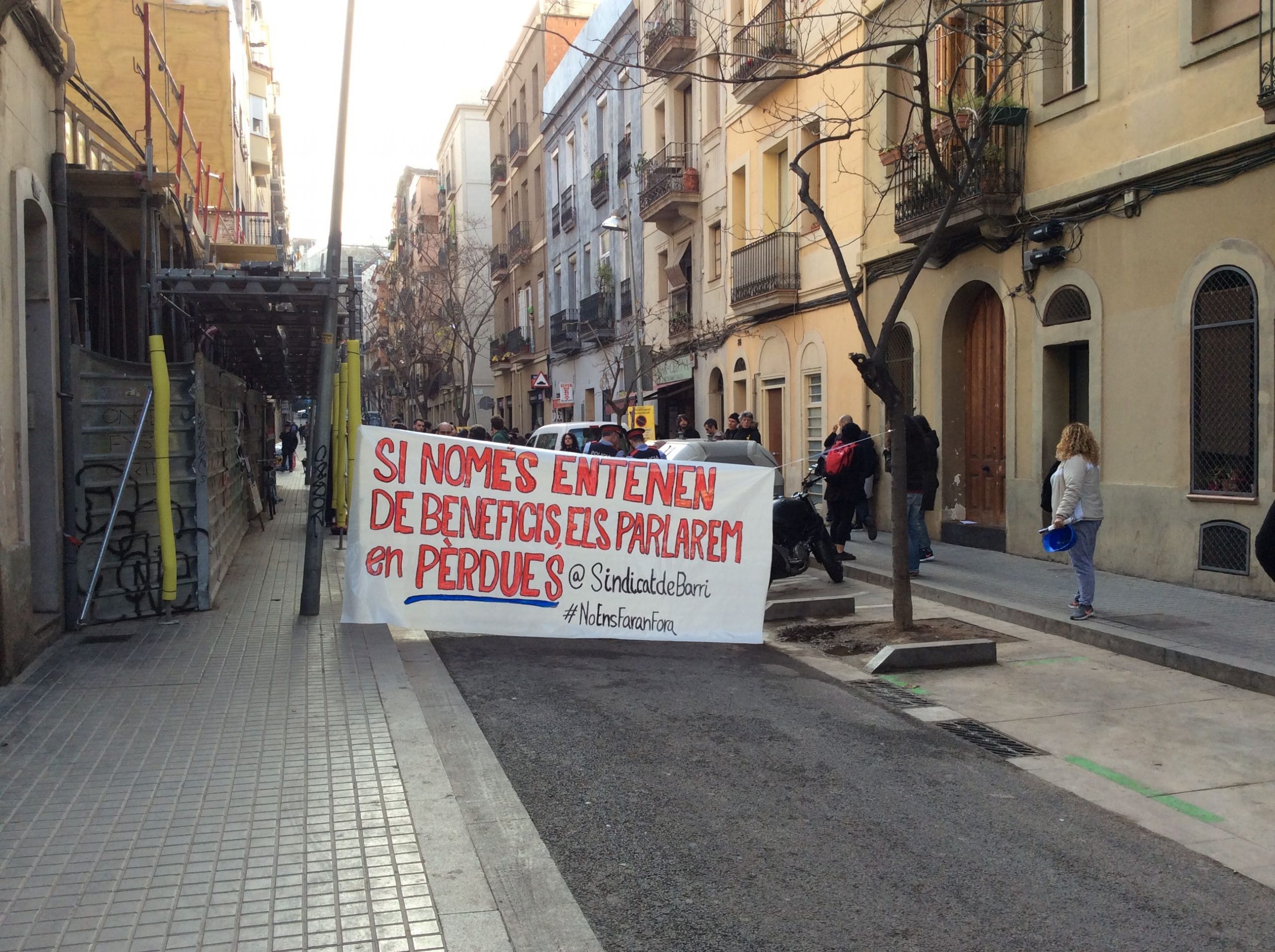
Though tourism has contributed significantly to Barcelona’s economy, representing more than ten percent of the city’s pre-pandemic GDP and adding 120,000 jobs, local activists claimed that only a tiny minority derived economic benefit from such tourism. In fact, tourism workers reportedly earned just half the average annual salary in Barcelona, that is to say, a paltry 17,000 euros a year. It wasn’t long before local residents took to the streets in protest, while chanting slogans such as “Barcelona is not for sale,” and “we will not be driven out.”
At one point, things got so bad that masked protesters even stopped a tour bus and sprayed it with graffiti. Meanwhile, growing friction between demonstrators and the tourism industry led the private sector to accuse leftist Mayor Ada Colau of encouraging so-called “tourism-phobia.” Hardly amused, the mayor announced a one-year moratorium on tourism projects including hotels, student residences and hostels. Not stopping there, Colau curbed plans for Barcelona’s airport expansion and announced caps on the number of cruise ships in port. The authorities also declared a climate emergency, while limiting the number of vehicles entering Barcelona. Furthermore, City Hall aggressively went after illegal vacation rentals, which had generated speculation while giving rise to an underground economy. Lastly, officials outlawed nudity in downtown Barcelona while seeking to crack down on fuelled boat trips.
COVID’s Impact: A Mixed Blessing?
In retrospect, pre-COVID debates about “over-tourism” can almost seem quaint. Indeed, Foreign Policy magazine notes, “overnight, much of the world went from over-tourism to no tourism.” “Though the [Barcelona] protests were quite recent,” writes Forbes, “they now seem to have occurred several millennia ago, on an entirely different planet, one upon which the freedom to travel for business or pleasure was an inalienable right.” As Fodor’s remarks, “a deadly virus did more to curb tourism than five years of legislation. A [Barcelona city] government that had been actively working to reduce the number of tourists just weeks prior now desperately wanted them back.”
COVID, it seems, has exposed just how dependent Barcelona has become on tourism and the city’s thirty million annual visitors. Hardest-hit areas have been the old city, which is now home to an odd collection of empty hotels and tourist apartments, and the Born, a neighbourhood which in the best of times had been home to bustling restaurants, cocktail bars and gentrified curio shops. Iconic Boqueria, which had grown dependent on tourism, is now almost empty with just a quarter of the market’s space open for business. “But simply to say,” notes Forbes, “that the country’s travel industry will suffer in the near-to-medium term does not do justice to the circumstance,” since travellers to Spain in 2019 “were, in effect, employers of thousands of people across other sectors of the economy that support and benefit from classic tourism, in culture, in retail, in food and drink.”
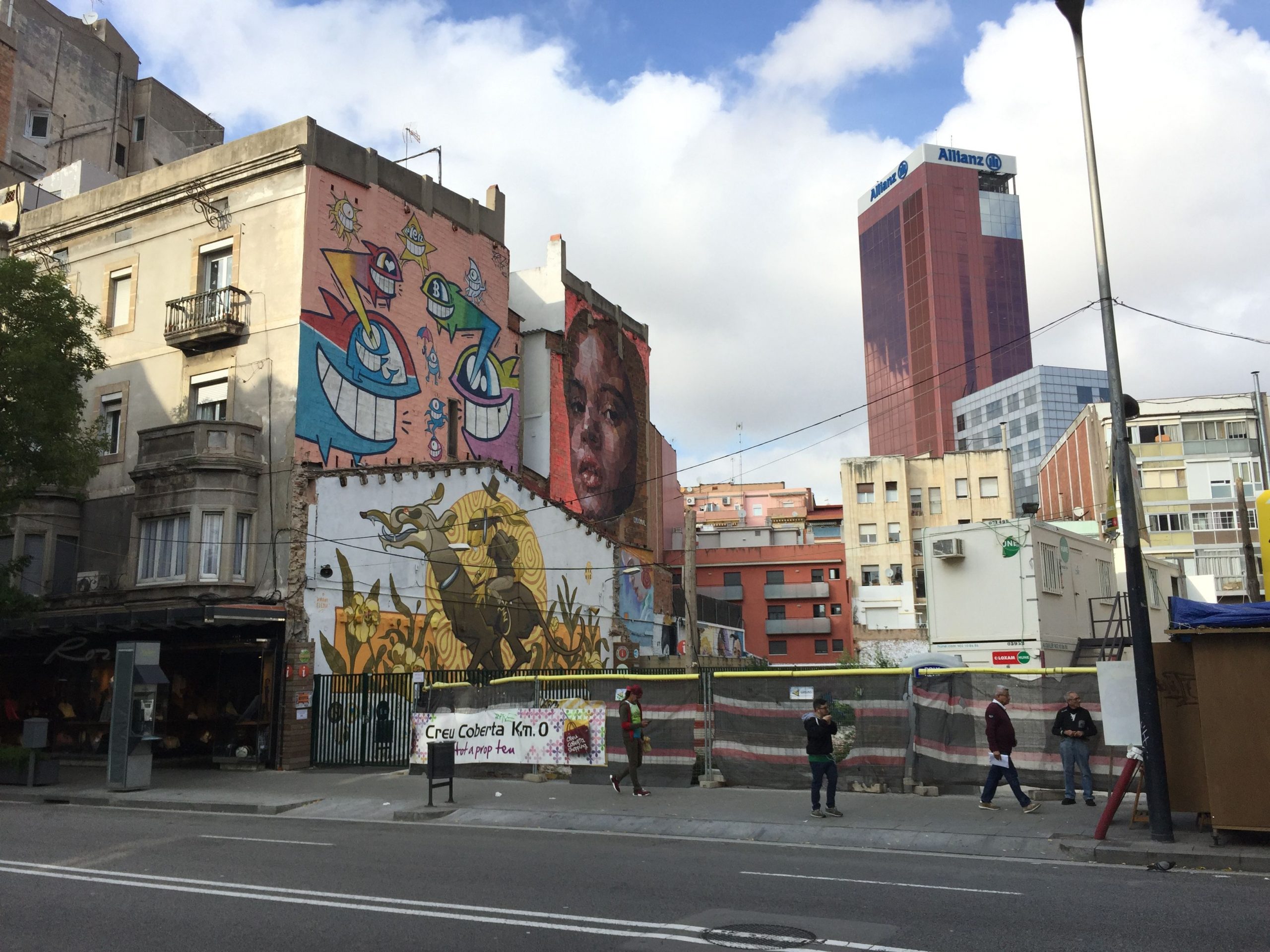
On the other hand, Barcelona has had a respite from mass tourism, and some like what they see. During lockdown, car and motorbike traffic plummeted, which in turn resulted in a decrease in pollution and noise. Mayor Colau has created more bike paths, and locals have reclaimed Las Ramblas from hung-over tourists. Just parallel to Las Ramblas, the authorities will create a “green and civic corridor” along Via Laietana, a main north-south road cutting through downtown. Under a new plan, the street will feature wider pavements, less car traffic and new bicycle lanes. Nature and wildlife have recovered and plant growth has exploded, which in turn has led to more butterflies, insects and food for birds. The authorities are constructing nesting towers for birds and bats, while also creating more open green space. Not stopping there, architects have set up a roof garden whose flowers will serve as feeding and nesting grounds for birds.
New Post-COVID Environmental Tourism?
With vaccinations now proceeding apace, what’s in store for Barcelona? To be sure, the era of mass tourism isn’t coming back any time soon, and many will be put off from cruise ships altogether. Furthermore, in a sign that tourism-phobia has hardly abated, youths recently ransacked local Barcelona tourist agencies while scrawling the premises with messages like “tourist go home” during riots sparked by the jailing of rapper Pablo Hasel. Despite this, some observers believe that Barcelona has no alternative but to pursue tourism, given the sector’s economic importance.
But with the tourist industry now re-imagining itself with an eye towards public health, some envision a “great reset.” The OECD reports that many countries are now seeking to build a more resilient, sustainable and environmentally-friendly tourism model. “For years,” writes The Local, Spain’s news in English, “people have been saying the Barcelona model was unsustainable but as long as the money kept flowing, no one was prepared to step in and say, enough, we can’t go on like this. Now the virus has done it for them.” Barcelona’s Director of Tourism, a public-private agency, has remarked that “if we manage to turn Barcelona into a sustainable city, we will send a message to the whole world.”
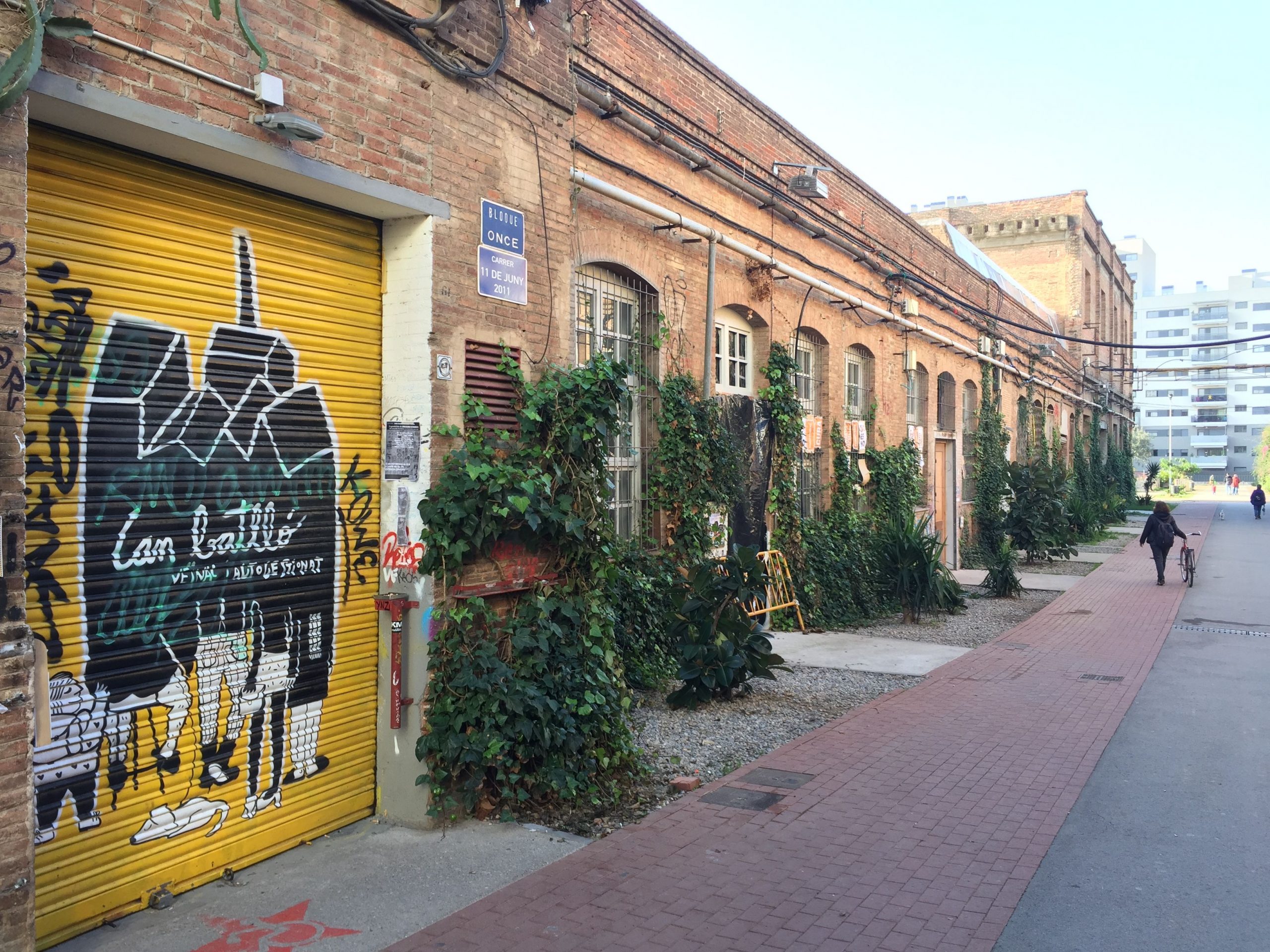
In tandem with such ideas, the city has set aside ten million euros to pursue proximity tourism and sustainability. Environmentalists, meanwhile, are clamouring for an end to mass tourism, while calling for the elimination of airline subsidies so as to favour train travel. Experts, moreover, seek to eliminate low-paying tourist sector jobs in favour of economic diversification and more dignified employment. Still others argue that it’s time to move beyond the concept of sustainability altogether, with some academics convening conferences to discuss a so-called “de-growth” strategy for tourism.
Rise of the “Super-Block”
Perhaps, Barcelona can help attract different types of visitors by ushering in a new era of environmental tourism. For years, the city has been pushing a so-called “superblock” scheme, which groups together nine city blocks at a time. The proposal seeks to prioritise pedestrians, residents, and street users over cars, which is particularly appealing now in light of studies which have revealed a link between air quality and susceptibility to COVID-19. Superblocks are fitted with plants, benches, cycle lanes, play areas and green spaces. Most parking spaces, meanwhile, are eliminated and though cars aren’t banned outright, superblocks could be considered “car-unfriendly.”
Maybe it’s not classic-style tourism, but in future, curious visitors might embrace Barcelona’s innovative ideas concerning public space, and bring such concepts back to their own respective cities. While there are only a few superblocks currently, the number could reach up to 500 if the entire plan is carried out by 2030. Even within these few superblocks, however, traffic has fallen drastically, noise levels have dropped and NO2 pollution has decreased. In the long-run, urban planners hope superblocks will incorporate plans designed to hasten water capture, recycling, solar panels and thermal energy storage, thereby creating a greater degree of energy independence. If all goes according to plan, Barcelona will eventually be covered in superblocks, with almost seventy percent of city streets becoming mixed use.
Such a large percentage, notes Vox, “would mean a shift in the urban fabric as significant as the arrival of cars in the first place.” Perhaps it’s not a coincidence that Barcelona is leading the charge when it comes to the iconoclastic environmental agenda. Indeed, the city has a long history of urban rebirth and transformation, not to mention radical politics, and Barcelona has welcomed the contributions of iconoclastic innovators. Superblocks represent a utopian vision, the publication notes, since no other existing major city has managed to promote such ideas on a wide scale. Though it’s unclear whether the superblock plan will be fully implemented, the proposal has the backing of Barcelona’s leftist municipal authorities.
From Refugees…
Another interesting strand to the tourism discussion has to do with refugees. While many have bought into the notion that migrants represent a financial drain on society, some studies suggest that immigrants who settle in Western Europe, including Spain, make a vital contribution and represent a net economic gain. Could the resettlement of refugees encourage alternative-style economic development, in contrast to boondoggle tourism? Perhaps, Barcelona may offer an intriguing test case.
Even before the pandemic, in the midst of popular campaigning against tourism in Barcelona, there had been simultaneous calls to protect the rights of refugees. In early 2017, for example, a whopping 160,000 people demonstrated in the city to demand that more refugees be admitted to Barcelona from war-torn areas like Syria. In response to the refugee crisis, Barcelona’s City Council agreed to take in a portion of migrants aboard a rescue ship which had been rejected by Italy and Malta.
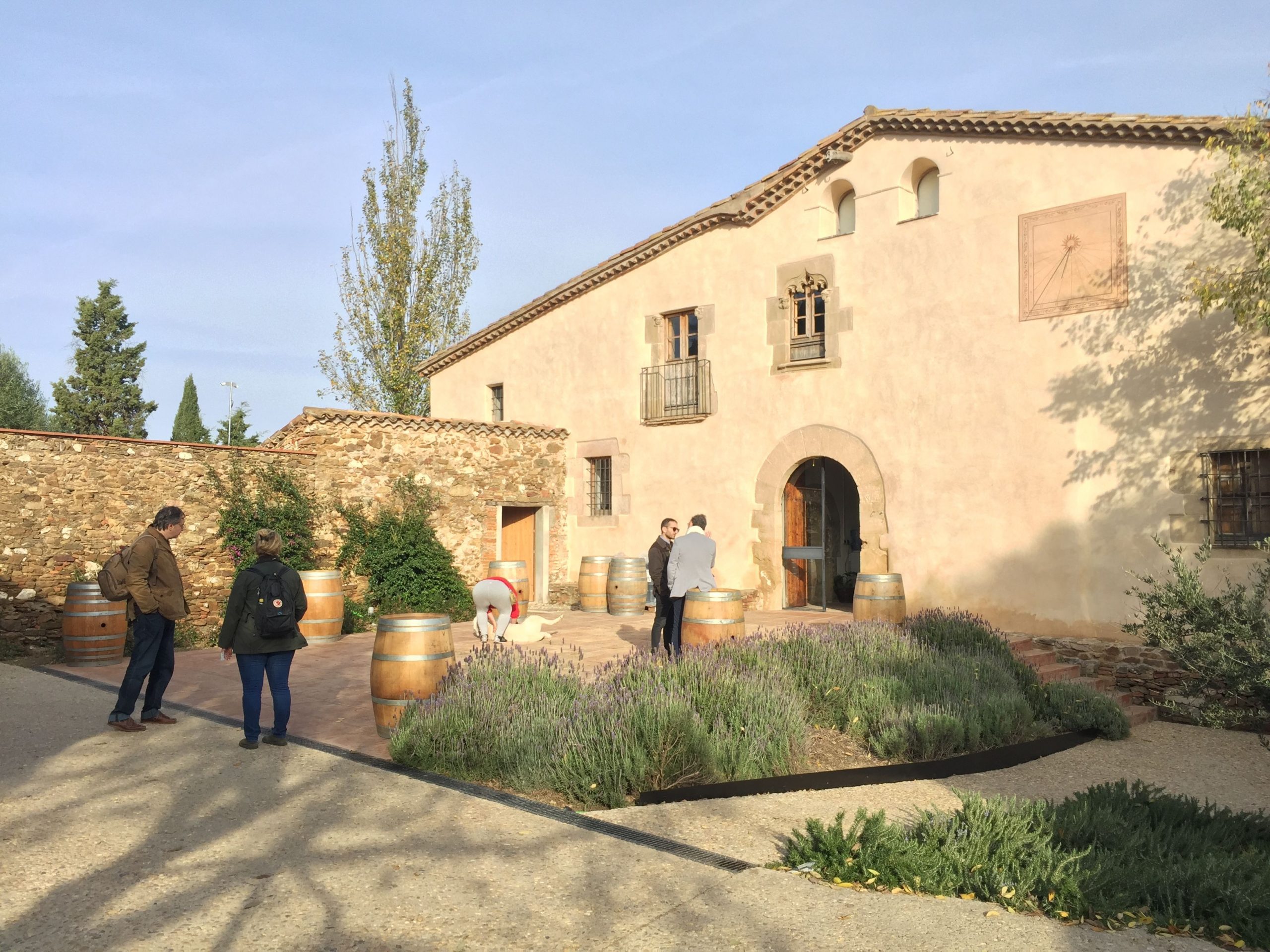
Additionally, authorities developed a program called “Refugee City,” which helped migrants settle into Catalonian society. “Is it really the case,” asked the Guardian, that Barcelona would prefer to receive thousands of penniless immigrants rather than…millions of tourists…? The short answer, it appears, is yes.” Intriguingly, the paper noted that an influx of new residents had not given rise to any anti-immigrant backlash, nor had immigration become a polarising issue in local politics.
To Restaurants…
Though migrants certainly hold a diverse array of skills, they have made a big mark on Barcelona’s food scene. Take, for example, Espai Mescladís, a not-for-profit café designed to foster social cohesion. The restaurant is located in a “mixed zone” just in between the touristic Born and Barri de Sant Pere, a modest neighbourhood home to many immigrant families. The area exists on a kind of uneasy urban frontier, between those who want to turn a profit, on the one hand, and local neighbourhood organisations, on the other. In 2006, residents reclaimed a square in the vicinity which had been slated for development, and turned it into a community garden and play area.
The restaurant serves everything from Catalan to Mediterranean and North African food, and customers sample dishes ranging from spiced veggie hamburgers to Moroccan bread to bissap, a Senegalese hibiscus drink. The restaurant’s migrant staff are trained to cook and cater, while interns receive crucial assistance in handling asylum claims. The owner, who is an Argentine migrant himself, believes migration is a right and condemns the tragic deaths of migrants who perished while attempting to cross the Mediterranean. More than just a restaurant, Espai Mescladís also serves as a culinary school and publishing house promoting projects ranging from photography exhibits to graphic novels depicting the immigrant experience.
To Cooperatives
Maybe it’s time to develop cooperative restaurants and hotels, which could attract a different type of visitor to Barcelona while developing an alternative-style economy. As the experience in Buenos Aires has demonstrated, such notions are hardly fanciful. Take, for example, the 22-floor worker-controlled Hotel Bauen, located in downtown Buenos Aires. Nearby, hungry customers patronise Alé Alé, a cooperatively-owned grill, while others head to Los Chanchitos, a restaurant which has been ranked highly among patrons. According to the Guardian, Bauen acts as a kind of “mentor” to other cooperative businesses in the area.
Barcelona is well-placed to capitalise on newfound enthusiasm for such cooperative-owned businesses. Indeed, the cooperative movement in Spain goes back more than sixty years to the founding of Mondragón Corporation, a federation of more than 100 cooperatives employing a whopping 73,000 people. In Barcelona, the cooperative sector has been steadily growing, and now encompasses thousands of businesses ranging from consumer, housing and farming cooperatives to music clubs to healthcare and bookshops. Even the famous Barcelona FC soccer club is a cooperative association comprised of 175,000 members who decide upon the organisation’s collective direction and future.
Mayor Colau has sought to create more jobs in the cooperative sector, and the authorities have supported the growth of cooperative ventures by developing a new social procurement guide. Local city council spends more than one billion euros a year, and authorities want to turn public contracts into a tool for sustainable and equitable growth. In an effort to reward democratically-run enterprises, while discouraging businesses which pay their taxes in tax havens or offshore production, officials have consulted with community groups, which in turn select winning contracts. Under new rules, big business will be compelled to disclose its wages and costs, while purchasing a certain percentage of goods from the cooperative sector.
Path to Ecotopia
Even before COVID-19 struck, Barcelona had experienced classic tourism’s nadir, and, if anything, the pandemic has shaken up the debate around the future of travel to an even greater extent. At the very least, once the city re-emerges from the pandemic, there is bound to be a reconsideration of some of the more wasteful and undesirable aspects of the old touristic model, though hopefully Barcelona will push for a more far-reaching and radical agenda. Will the city become a beacon for a new type of traveler, by developing an alternative economy and promoting a ground-breaking urban environmental vision? Will there be enough political will to foster such innovative ideas in the long-term? While these questions are unanswered, one thing is certain: if any city is capable of re-imagining itself, Barcelona, with its history of iconoclastic and visionary thinkers, not to mention leftist politics, surely seems like it could be a pathbreaker.
Nikolas Kozloff is a New York-based author who has written more than forty articles about the environment and climate change and is recently focusing on post-Coronavirus environmental futures. He is the author of No Rain in the Amazon: How South America’s Climate Change Affects the Entire Planet.
To follow Nikolas on Facebook, click here. To follow on Twitter @nikolaskozloff, click here.

